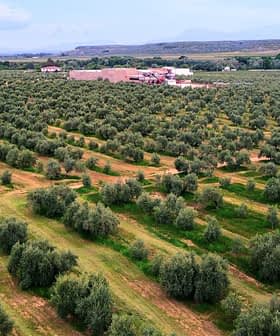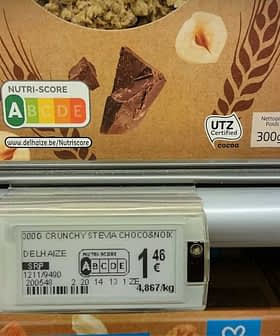EU Investigates Alleged Fraud in Greek Agricultural Subsidies
European Union authorities are investigating a multi-million-Euro fraud in Greece, where agricultural subsidies intended for farmers have been diverted to non-farmers. The investigation includes a raid on the Ministry of Rural Development and Food’s payment agency, Opekepe, and the case has already resulted in charges against seven defendants for submitting false subsidy applications.
An alleged multi-million-Euro fraud in Greece, in which funds reserved for agricultural subsidies have been channeled to non-farmers, is under investigation by European Union authorities.
Last month, prosecutors from the European Public Prosecutors’ Office (EPPO), accompanied by officials from the Greek anti-corruption unit, raided the Ministry of Rural Development and Food’s payment and control agency for guidance and to guarantee community aid’s (Opekepe) headquarters in Athens in the pursuit of unlawful payments to non-eligible individuals.
Opekepe is a Greek public agency responsible for distributing European subsidies of around €3 billion annually to Greek farmers and livestock breeders.
See Also:Revised Agricultural Policy Aimed at Helping Small European FarmersPolitico reported that Opekepe’s employees physically confronted the EPPO officials during the raid.
In comments to Politico, Laura Kövesi, the European Chief Prosecutor, vowed to press ahead with the probe into the agency despite “attacks” and “intimidation” against the EPPO staff.
EPPO said that in a series of cases between 2019 and 2022, Opekepe made payments to individuals who falsely declared lease or ownership of pasturelands or claimed to be young farmers to receive European subsidies.
According to one complaint, an individual declared himself to be the owner of 2,200 hectares of olive groves planted at an altitude of 1,800 meters on the mountains of western Macedonia, a northern Greek region that is highly unlikely to foster olive trees due to the high altitude and freezing winters.
The root of the problem of the farming subsidies mismanagement can be traced back to 2015.
Around that time, the European Union decided to financially support livestock breeders and farmers according to the size of the pastures and grasslands they used or leased.
However, Greece’s Mediterranean landscape and the lack of forest maps that would demarcate the available pastureland in the country did not align with the official definition of pastures introduced by the E.U., which best described the pastures found in central and northern European member countries.
With the consent of Brussels, the then-Greek government issued a ministerial decision to provide a “technical solution” to the problem.
The decision allowed farmers and breeders to declare the use of pastures in areas away from their base for grazing their animals, thereby complementing the size of pastures they used and becoming eligible for subsidies.
This technicality, however, opened the door to usurpers who falsely declared themselves owners or users of pastures and claimed a portion of the European funds.
The case of fraudulent subsidies has already been referred to an Athens court, with seven defendants charged with submitting false applications to Opekepe and unlawfully receiving thousands of Euros in financial aid.
“This was a method, a scheme, used to access funds without meeting eligibility criteria,” said Paraskevi Tycheropoulou, an ex-Opekepe official and a key witness in the case. “In many cases, the land listed had never belonged to the applicants or had been declared by someone else in the past.”
See Also:Italian Police Official Explains How Olive Oil Fraud WorksAt least eight more similar cases involving the embezzlement of European agricultural funds are expected to reach court in the next few months.
In light of the misuse of the farming funds, the Greek government decided to abolish Opekepe and transfer its operations to the Independent Authority for Public Revenue (AADE).
Some, however, argued that the government rushed to shut down the organization in an attempt to prevent the prosecutors from digging deep into the scandal of funds mishandling.
Sources, requesting anonymity to discuss an ongoing investigation, told Olive Oil Times that government officials may have been aware of, or even had a role in, the dissemination of European funds to non-beneficiaries in the past few years.
As a group, the Greek farmers expressed their agony over the transfer of the agricultural payments to AADE.
“This transfer causes us enormous concern and fear over the subsidies payments,” farmer and head of the Evros farmers’ union Yiannis Margaritides said. “The revenue agency is an institution that has nothing to do with agricultural subsidies. It will take some time until they are properly coordinated, and we do not know what will happen with the payments.”
Meanwhile, reports of another potential case of mishandling European subsidies have surfaced in the country, this time concerning funds allocated for the country’s organic beekeepers.
According to a complaint filed with the Greek Ministry of Agriculture and Food by Etheas, the national union of agricultural associations, no evaluation is conducted to identify the genuine organic beekeepers before distributing the funds, resulting in the imprudent allocation of the money at the expense of the actual beneficiaries.
The total amount allocated to organic beekeepers in Greece exceeds €18 million annually.










